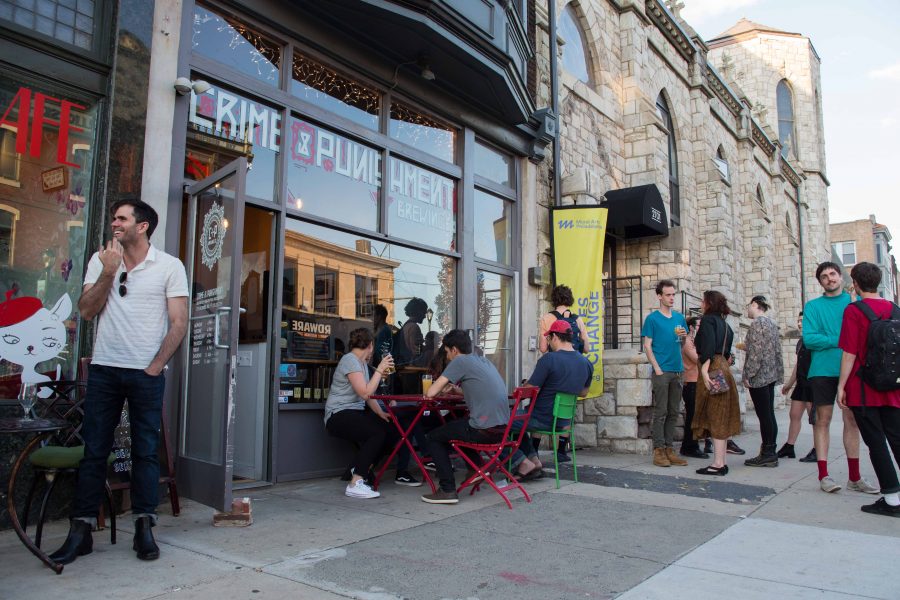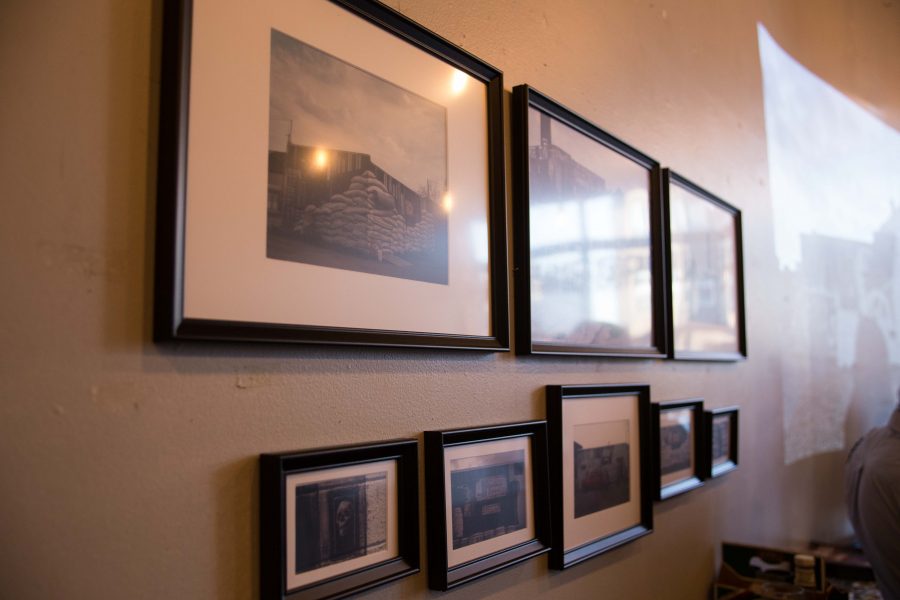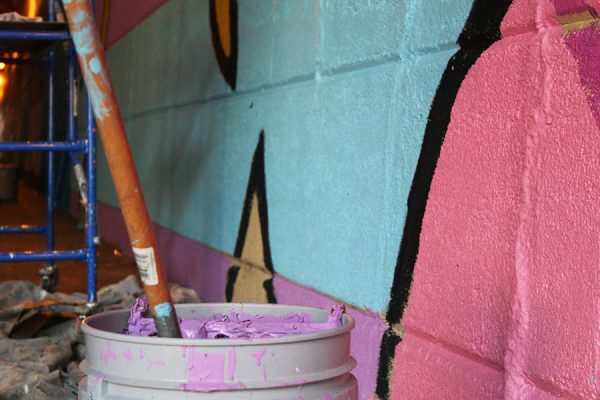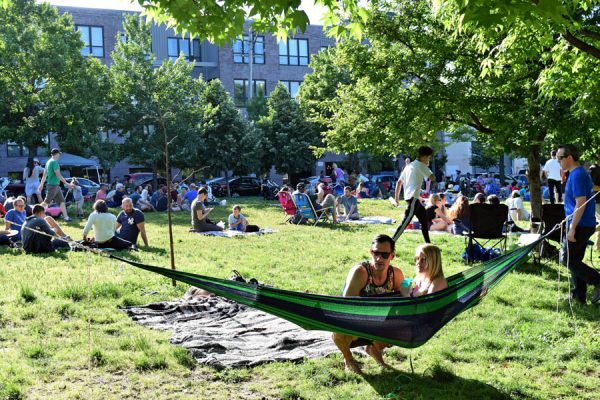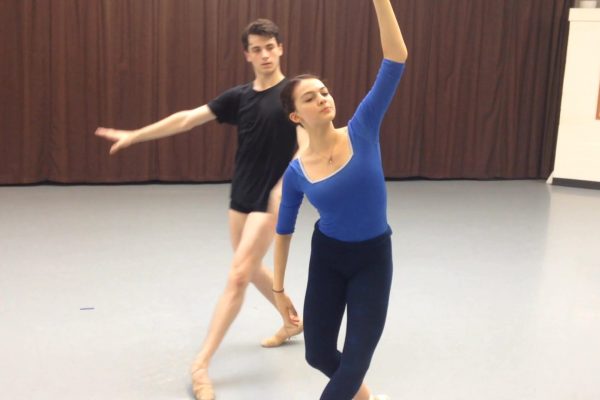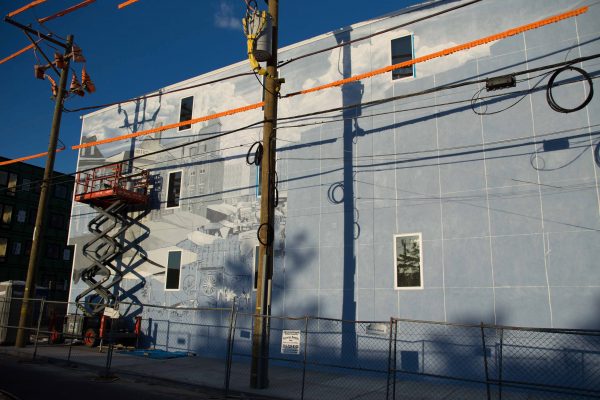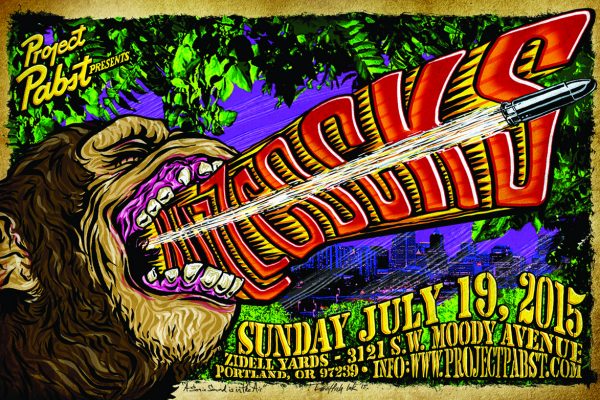New Mural Pays Homage to Brewerytown’s History and Revitalization
In its heyday, Brewerytown was the home of dozens of breweries, and stood as a major symbol of modern industrialism in Philadelphia.
Now, near 31st and Master streets, artist Phillip Adams has begun creating a mural honoring that history, just a block south of the old Red Bell Brewing Company a building dating back to the 1870s.
Last Friday, Mural Arts And Crime and Punishment Brewing Company co-hosted “Industrious Light: June First Friday,” a gathering that highlighted Adams’ work and the Industrious Light series. The series began in November 2014 when he completed a massive portrait of the original machinery in the Ortlieb’s brewery, which appears on what is now Ortlieb’s Lounge.
His new work at 31st and Master streets will depict the business and sheer output of what dozens of breweries brought not only to Brewerytown, and to Philadelphia and the overall region.
“I think one of the things that really just inspired it all is this idea of ‘history never repeats itself, but it rhymes,’” Adams, 38, said inside Crime and Punishment Friday evening. “Philadelphia was the epicenter of brewing for a long time, the first lager in the [United] States … even right here in Brewerytown, it was 11-plus breweries at once three blocks away, and it produced half the city’s booze … it was massive, and then Prohibition hit.”
Adams pays close attention to history with the Industrious Light series, seeking to remind people of it while maintaining the original feel of the buildings where his murals appear.
During the event Friday, a projector screened a timelapse of the production of the Ortlieb’s mural. Small pictures to the right showed Adams’ other work, while multiple groups provided live music for those inside Crime and Punishment.
Christine Rayburn, 29, plays guitar and clarinet for Lirra Skirra, an ambient folk duo that formed in the city and performed Friday.
“We were interested in doing a First Friday, getting involved with [Crime and Punishment] co-sponsoring an event with Mural Arts, so that seemed like a really interesting collaboration,” Rayburn said.
Rayburn added that she is good friends with Mike Wambolt, one of the owners of Crime and Punishment. Wambolt told Spirit News that his company is always looking to get involved in community events and collaborate with other community-focused organizations like Mural Arts.
He said planning started when Nicole McDonald, a Brewerytown resident and public programs and events manager for Mural Arts, contacted him about Adams’ work. The event made sense, especially given the start of Philly Beer Week, Wambolt added.
Wambolt, 29, also noted hosting the event at a brewing company was significant, given how most people in the neighborhood used to work at breweries before Prohibition. Getting everyone to sign on to that was easy—the most vital part was keeping open lines of communication.
“When people answer their emails, things go a lot smoother,” said Wambolt, who also tickled the ivories later on.
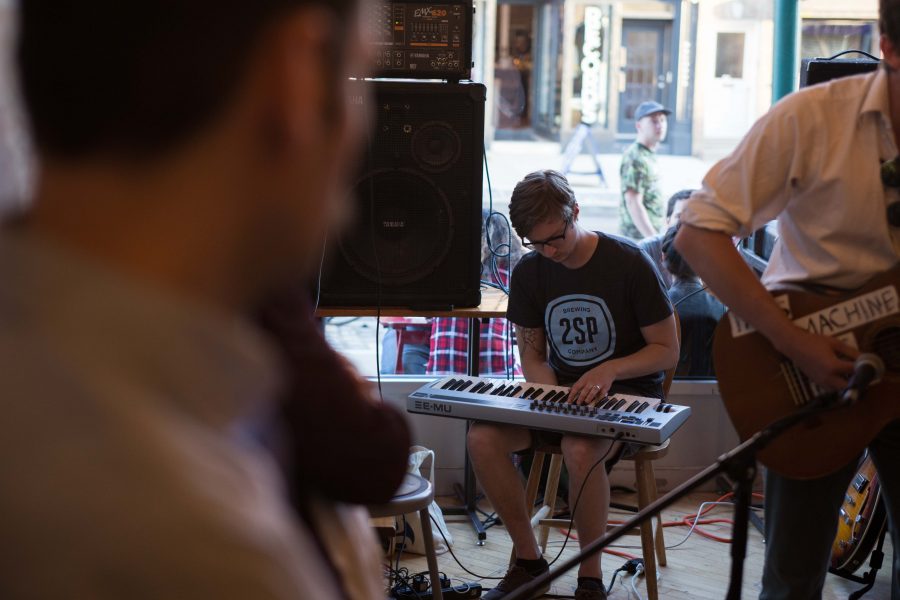
Mike Wambolt, one of the owners of Crime and Punishment, plays keys at the June First Friday event. /Patrick Clark
Throughout the night, Crime and Punishment was busy, as people stopped to observe Adams’ work and listen to live music from Philadelphia bands Lirra Skirra, yrs truly, ther and the New York City-based Giants.
Adams hopes his mural can show how rapidly Brewerytown and other neighborhoods citywide are transforming, from economic growth to overall development—similar to what was seen more than 100 years ago.
“At the turn of the [20th] century, Philadelphia was known as the Workshop of the World, and all these businesses were related in a lot of different ways,” he said. “It maintained this bubble of economic development and prosperity.”

